May E-Newsletter – May is Mental Health Awareness Month

May is Mental Health Awareness Month. Data from the 2021 YRBS (CDC) indicate mental health among students overall continues to worsen, with more than 40% of high school students feeling so sad or hopeless that they could not engage in their regular activities for at least two weeks during the previous year—a possible indication of the experience of depressive symptoms. Post-COVID YRBS data also indicated significant increases in the percentage of youth who seriously considered suicide, made a suicide plan and attempted suicide. This month, Teen Health Connection’s Manager of Behavioral Health Services, Betsy Thompson, LCMHC, discusses the current state of behavioral health among teens in Charlotte and what Teen Health Connection is doing to help.
What are the common behavioral health issues faced by teens?
Nationally, 1 in 5 adolescents have had a serious behavioral health disorder at some point in their life, with half of all mental health problems beginning by age 14. The most common behavioral health issues faced by teens include Anxiety, Depression, Eating Disorders, and Trauma and Stressor-Related Disorders.
Typical Symptoms:
Anxiety
- Excessive worry and difficulty controlling the worry
- Irritability
- Difficulty concentrating
- Sleep or eating difficulties
Depression
- Feelings of sadness or hopelessness
- Suicidal ideation
- Low motivation
- Difficulty concentrating
- Sleep or eating disturbances)
Eating Disorders
- Preoccupation with food or weight
- Refusing to eat certain foods or skipping meals
- Withdrawal from friends or activities
- Extreme concern with body size or shape
Trauma and Stressor-Related Disorders
- Changes in mood or cognition
- Difficulty sleeping/nightmares
- Avoidance of talking about the traumatic event
- Hypervigilance
- Dissociation
Looking at a post-COVID world, what are teens dealing with now on a behavioral health level that is different from before?
COVID significantly changed the landscape of behavioral health for teens. Teenagers faced rising levels of anxiety and depression. Teenagers dealt with the loss of loved ones from COVID or family stress (parents losing jobs, etc.) and lost connection with peers at school and their sense of “normalcy.” The levels of anxiety and depression are higher post-COVID, and I think they’re just (we all are) beginning to unpack the emotions of the last three years. This will take time to fully recover.
How can parents identify if their teen is struggling with their behavioral health? What symptoms may appear? What should parents do if they believe their teen is struggling?
Any change in behavior that seems out of the ordinary is a red flag. This may look like teens who appear isolated and withdrawn or are overly stressed and irritable. Teenagers are supposed to be all those things on a regular basis, as part of development, but this would occur more frequently than usual or more intensely. Have their friendships changed? Has behavior at home changed? Are they more sad than normal? More anxious? Difficulties sleeping and/or eating? Change in what interests them, or a marked lack of pleasure in the things that used to bring them joy?
Talk to your kids to keep open lines of communication during these teen years. Ask, and then listen. And then listen some more. Get involved in therapy. Find the right fit with a therapist. Normalize that may take time to be comfortable. Offer praise for their willingness to get help and talk. Listen again – without judgment.
What treatment modalities does Teen Health Connection utilize to treat the common behavioral health struggles of teens? How do parents know if these treatment modalities are right for their child?
Teen Health Connection currently has nine behavioral health clinicians, each one bringing a unique skill set to meet the needs of teens. Our practice utilizes the following treatment method, tailoring our approach in an individualized manner to meet the needs of our patients and families.
- Cognitive Behavioral Therapy (CBT) – Very effective for anxiety and depression
- Trauma-Focused Cognitive Behavioral Therapy (CFCBT) – Evidenced-based practice for individuals aged 3-18 to address trauma
- Brainspotting- Another modality to treat trauma or any other issue utilizing eye positioning to help the brain process and heal
- Individual and Family Therapy
- Maudsley – Evidence-based family treatment for eating disorders
- Gender affirming care
What resources are available in our community for parents, caregivers, or providers to help address teens’ behavioral health?
Teen Health Connection has a number of resources, including therapy, parenting classes, and the Teen Advisory Board to help connect teens and their families to support. There are many treatment options in the community available. The local NAMI chapter is a great resource. Getting teens involved in local mentorship programs can help kids be involved in pro-social activities which help overall mental health as well. In addition to Teen Health Connection’s behavioral health triage clinicians, I recommend utilizing Psychology Today and Alliance Health to find treatment providers and resources.
![]()
![]()
![]()
![]()
![]()

Betsy Thompson, Manager of Behavioral Health Services, LCMHC


